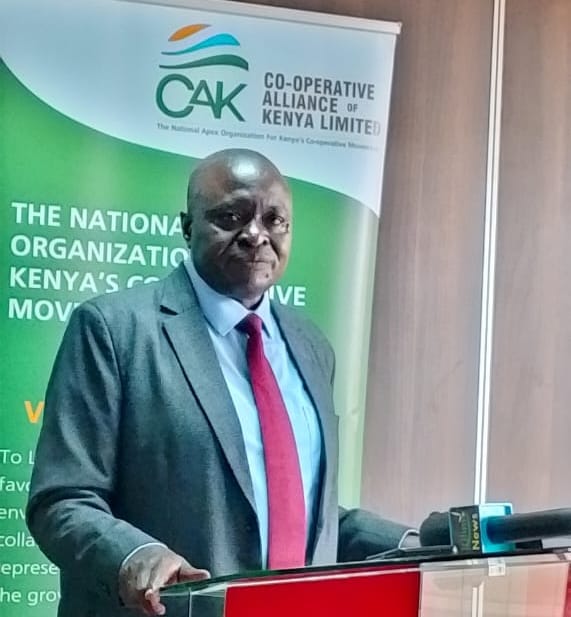Kenya is preparing to mark this year’s Ushirika Day celebrations on July 12, with the National Council for Ushirika Day Celebrations unveiling a lineup of nationwide events to honour the critical role of cooperatives in the country’s social and economic development.

Speaking during a press briefing in Nairobi on Wednesday, Vice Chairman Daniel Marube said the 2025 celebrations are especially significant as they coincide with the close of the United Nations-declared International Year of Cooperatives (IYC), observed under the global theme “Cooperatives Build a Better World.”
Marube noted that the theme reflects the transformative impact of the cooperative model in addressing global challenges such as poverty, inequality, unemployment, and climate change.
“The cooperative model remains one of the most inclusive systems—rooted in democratic values and shared prosperity,” he said.
A range of events has been planned in the lead-up to the main celebration. On Thursday, July 3, a nationwide blood donation drive will take place at the Kenyatta International Convention Centre (KICC), in collaboration with Kenyatta National Hospital and the Kenya National Blood Transfusion Service. County-level celebrations will follow on Saturday, July 5, taking place across all counties—except Nairobi—at venues designated by the respective County Organizing Committees.
The climax of the festivities will be held on Saturday, July 12, at the Kenyatta International Convention Centre, where the National Celebrations and Awards Ceremony will recognize outstanding cooperatives and key stakeholders from across the country.
Marube hailed the strength of Kenya’s cooperative movement, describing it as a cornerstone of economic and social progress, particularly in agriculture, housing, employment creation, and financial inclusion.
In agriculture, smallholder farmers in the dairy, coffee, tea, and sugar sectors continue to benefit from cooperative aggregation and value addition. Notably, the Kenya Coffee Cooperative Exchange reported record earnings in 2025, with Nyeri-based Njuriga and Othaya Coffee Societies paying farmers Sh172 and Sh158 per kilo of cherry respectively. In the dairy sector, Meru Dairy Society recorded a turnover of Sh18.3 billion in 2024, collecting over 195 million litres of milk and disbursing nearly Sh900 million monthly to farmers.
“These figures represent more than just business success—they reflect the transformation of rural economies,” Marube remarked.
Cooperatives are also leading efforts in the delivery of affordable housing. With support from the Kenya Mortgage Refinancing Company, the sector is expected to contribute up to 25 percent of the country’s affordable housing units, particularly targeting Kenyans excluded from formal mortgage markets.
Meanwhile, Savings and Credit Cooperatives (Saccos) continue to empower women and youth through low-interest loans. These financial services have enabled small business growth, improved household incomes, and helped reduce poverty, especially in rural areas and informal settlements.
The sector currently employs about 750,000 Kenyans directly, with millions more benefiting indirectly. This underscores its pivotal role in supporting the government’s Bottom-Up Economic Transformation Agenda (BETA).
The Cooperative Alliance of Kenya (CAK) has urged the national government to enact progressive laws, increase budgetary allocations to the sector, and integrate cooperative education into the school curriculum. County governments, constitutionally mandated to oversee cooperative development, have also been called upon to strengthen extension services, improve audit and governance systems, and promote aggregation and value addition across cooperative enterprises.
“As we prepare to mark Ushirika Day 2025, we must reaffirm our commitment to building a better, fairer, and more inclusive economy through cooperatives,” said Marube.






